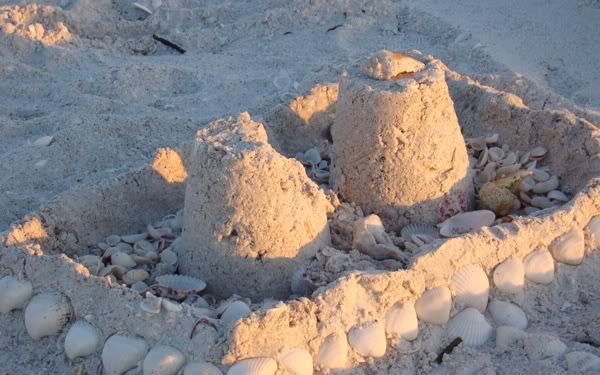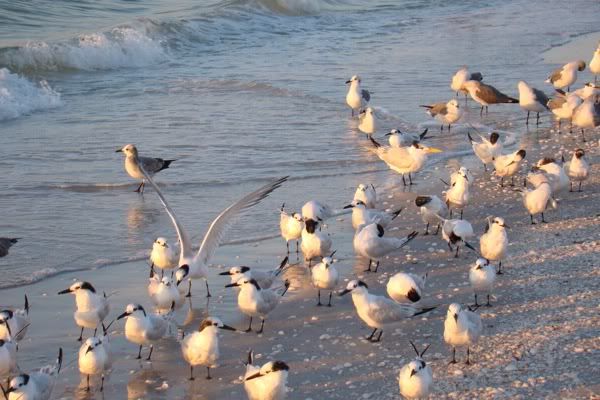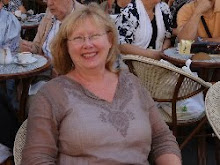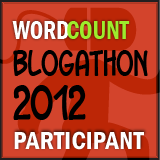A new treasure made from gifts from the sea on Sanibel Island, FL
“What is the shape of my life?”
Before I went into surgery last month, one of my readers suggested I use recovery time to read Anne Morrow Lindbergh’s Gift From the Sea. Since exactly a year ago that same week in October I had been sitting on a beach in Florida, collecting my own seashells, and enduring horrible arm pain during two kayaking trips that made it even clearer I needed surgical intervention, I thought the suggestion was rather auspicious.
When I dug out my used copy I found stuck in the pages the pencil I had used to mark words to live by from my first reading. Hardly anything was underlined, though. Why? It’s a small book. Why hadn’t I finished it? Had I first entered Lindbergh’s quiet world at a time that I had so much noise in my life I couldn’t hear what she was saying? Or did her words just not speak to me? Rather than simply starting where my pencil indicated I had left off, I went back to the beginning.
Lindbergh began the book during a brief sabbatical at the beach in order to think about her pattern of living, i.e, her own balance of life, work, and relationships. At first she assumed her own reflections on the shells – the gifts from the sea – that she found during her daily walks would apply only to her life. However, she learned through conversations that many men and women in all strata of life were occupied with the same question she had asked herself: What is the shape of my life?
Before I went into surgery last month, one of my readers suggested I use recovery time to read Anne Morrow Lindbergh’s Gift From the Sea. Since exactly a year ago that same week in October I had been sitting on a beach in Florida, collecting my own seashells, and enduring horrible arm pain during two kayaking trips that made it even clearer I needed surgical intervention, I thought the suggestion was rather auspicious.
When I dug out my used copy I found stuck in the pages the pencil I had used to mark words to live by from my first reading. Hardly anything was underlined, though. Why? It’s a small book. Why hadn’t I finished it? Had I first entered Lindbergh’s quiet world at a time that I had so much noise in my life I couldn’t hear what she was saying? Or did her words just not speak to me? Rather than simply starting where my pencil indicated I had left off, I went back to the beginning.
Lindbergh began the book during a brief sabbatical at the beach in order to think about her pattern of living, i.e, her own balance of life, work, and relationships. At first she assumed her own reflections on the shells – the gifts from the sea – that she found during her daily walks would apply only to her life. However, she learned through conversations that many men and women in all strata of life were occupied with the same question she had asked herself: What is the shape of my life?
Each chapter focuses on a particular type of shell that becomes a trope for exploring her life as a woman, a wife, a mother. She sets up her argument with the channelled whelk, representing simplicity in life that seems to elude her and most women. “Distraction is, always has been, and probably always will be, inherent in woman’s life.” I snapped to attention. Wasn’t this what I had lamented myself in a less poetic way when I explored decision fatigue?
“She wants perpetually to spill herself away. All her instinct as a woman – the eternal nourisher of children, of men, of society – demands that she give.”
In her chapter on the moon shell Lindbergh offers the German word “Zerrissenheit” – torn-to-pieces-hood – to illustrate how centrifugal force pulls her and other women every which way, causing us to lose our balance or risking shattering us. How do we maintain our individual center in the midst of marriage and other relationships? How do we continue to flower in the “afternoon” of our lives? For her, alone time as well as a creative life were essential. She found that beauty was better able to bloom in empty space. She chose to bring home not every shell she found (her “surfeit of treasures”) but just those she could fit in her pocket.
In her chapter on the moon shell Lindbergh offers the German word “Zerrissenheit” – torn-to-pieces-hood – to illustrate how centrifugal force pulls her and other women every which way, causing us to lose our balance or risking shattering us. How do we maintain our individual center in the midst of marriage and other relationships? How do we continue to flower in the “afternoon” of our lives? For her, alone time as well as a creative life were essential. She found that beauty was better able to bloom in empty space. She chose to bring home not every shell she found (her “surfeit of treasures”) but just those she could fit in her pocket.
“We tend not to choose the unknown which might be a shock or a disappointment or simply a little difficult to cope with. And yet it is the unknown with all its disappointments and surprises that is the most enriching.”
I reached this point in Lindbergh’s little devotional on the same day that my sister got me out of the house to see the independent film The Way, written and directed by Emilio Estevez and starring his father, Martin Sheen. In the story, the recently widowed father takes on the challenge of finishing a pilgrimage to Santiago de Compostela (The Way of St. James) that the son had only begun when dying in an accident one day into his journey (learn about the film and watch an interview with father and son here). Before taking off for Spain they argue about the son’s lack of roots or achievements. The son chides his father on the limits he had placed on his own life by comfortable conventions. “This is the life I chose,” the father says. “You don’t choose a life, Dad. You live one,” his son replies.
I reached this point in Lindbergh’s little devotional on the same day that my sister got me out of the house to see the independent film The Way, written and directed by Emilio Estevez and starring his father, Martin Sheen. In the story, the recently widowed father takes on the challenge of finishing a pilgrimage to Santiago de Compostela (The Way of St. James) that the son had only begun when dying in an accident one day into his journey (learn about the film and watch an interview with father and son here). Before taking off for Spain they argue about the son’s lack of roots or achievements. The son chides his father on the limits he had placed on his own life by comfortable conventions. “This is the life I chose,” the father says. “You don’t choose a life, Dad. You live one,” his son replies.
When the father shoulders his dead son’s backpack and begins the 500-mile trek of forced simplicity along a trail that has carried pilgrims for a thousand years, he embodies Lindbergh’s conclusion. The pilgrimage allows him time to center himself as well as offers the enriching opportunity to reach out to people and situations new and strange. Lindbergh does not imply we must abandon our daily routine to achieve the sense of peace she has after her two-week pilgrimage to the beach. We just need to be conscious of the questions she’s asking – of the value of simplicity and aloneness, the wealth found in a creative spirit, the importance of the here and now. This time Lindbergh’s every word spoke to me.
“When we start at the center of ourselves, we discover something worthwhile extending to the periphery of the circle.”
“When we start at the center of ourselves, we discover something worthwhile extending to the periphery of the circle.”
What allows you to find that center? Is it an activity, a book, a mantra? Please share in the comments box what grounds you when centrifugal forces are stretching you ever thinner.
Do you find yourself too often going in the same direction as the crowd? What sets you to flight?






![Grace [Eventually]: Thoughts on Faith](http://photo.goodreads.com/books/1166504427s/12542.jpg)









10 comments:
Julie, thanks for this beautiful post. I hope your recovery is going well.
For me, long distance running helps keep me centered. It gives me solitude and lots of time to think.
I know a lot of people who do that, Becky. Up until a couple of years ago I had a dog who was a great walker. I loved to take off with her and walk the trails at our nearby park. She was a great listener or she'd find a place she just wanted to sit and watch the world, which also was so relaxing. I really miss our walks.
Wow. These are powerful words and a lot of food for thought. What helps me is walking my dog. I put on my ear buds and listen to whatever music moves me in the moment and start walking through our neighborhood, wandering really, not thinking about where we're headed. Doing this allows me to think and often I get ideas for my writing. They magically come to me when I'm out walking. I've been wanting to see that Martin Sheen/Emilio Estevez movie. Thanks for sharing!
Love your blog! For me it's writing. How many times have I written myself out of a bad mood, or written myself home (as Natalie Goldberg says). But I have to balance it with physical activities such as yoga and running. And I devour books. And I try to make time to listen to the small still inner voice.
Julie, I was kind of surprised to see this blog post so soon after we saw "The Way". The idea and message of the movie had been on my mind since then and obviously it made an impact on you, too.
Walking has always involved a dog. Stopping and starting depends on where their nose takes us, so I'm trying to picture a long walk on the Camino without the "distraction" of a dog. Would I focus on myself? Would I see more of the world around me (instead of eyeing the dog so I won't trip or they won't eat something inedible)? I'm very curious how I would react if normal life stops for awhile and I could re-focus on what's important to me.
P.S. Could I borrow Gift From the Sea?
Yes, Melinda. Come for dinner on Sunday and pick it up. I hadn't thought about it that way. I wonder how my neighborhood walks would be different if I didn't have a dog with me, usually dictating the rhythm of the trip.
Reading the comments here makes me miss my little cockapoo who always had a way of grounding me at the same time walking her became more of a flight as she pulled me along on her leash.
I love Anne Morrow Lindbergh's book, Julie, and make a point of reading it at least once a year. I always take away another nugget of wisdom that seems to hit right where I need it most in the moment.
Thanks for mentioning the movie, The Way. I didn't know the full story until I read about it here. I'll be sure and check it out.
How extraordinary Julie. I recently spent 2 weeks in hospital with my daughter and the day she was admitted, my previously ordered copy of 'A Gift from the Sea' arrived in the post, it had been sitting in my wish list for some time and auspiciously arrived that day so I took it with me.
While I was in the hospital, I read one of her essays each night and found her a wonderful companion, even if the essays were written so many years ago - there is a kind of timelessness to them as each one represents a different stage in life.
It was interesting in the copy I had where she writes an epilogue referring to the stage that was still to come at the time the book was published, one she hadn't really anticipated, that time in her life when she would have an abundance of the solitude she craved, it could have been another chapter and would have been just as interesting.
Thank you for the reminder, I had forgotten about this wonderful little treasure of a book, because I immediately passed it on to a friend, it was such a gem for me too in those long waiting hours and days.
I'm sure it was a treasure during a hospital vigil. The great thing about the book is that it doesn't have to be read front to back. Or all at once. And it is the perfect size for revisiting every year. Just to remind you of all you need to consider.
I hope that you are recovering well. Best wishes from London. As for finding my centre, what works for me (don't laugh) is a few minutes of meditation.
Oh, and a bit of dark chocolate...
Post a Comment